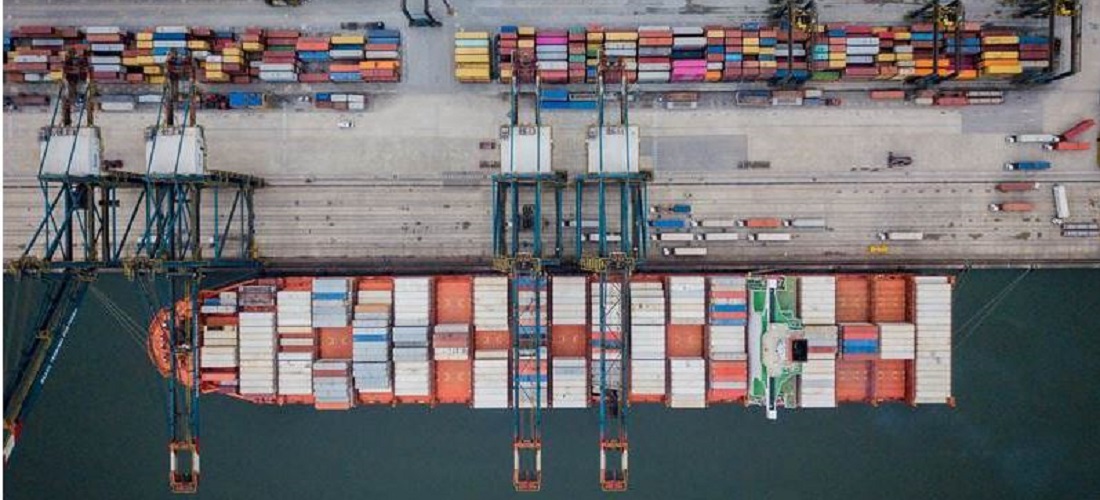
Council investigates alleged cartel in the Port of Santos
Sep, 23, 2024 Posted by Gabriel MalheirosWeek 202439
Brazil’s Administrative Council for Economic Defense (Cade) is investigating allegations of potential cartel activities among maritime pilots at the Port of Santos. Cade’s inquiry centers on suspected “anti-competitive practices” in pilotage services, with indications of possible violations of economic regulations. The pilotage service providers deny any misconduct and state that they are fully cooperating with authorities by submitting documents and providing necessary clarifications.
The investigation names the São Paulo State Pilots’ Union (Sindipráticos) and the General Coordination of Pilotage Zone 16 (Praticos ZP16), which covers the Baixada Santista and São Sebastião areas.
Although the inquiry was officially launched on August 28, the investigation began last year with a preliminary probe into potential irregularities (preparatory procedure). Cade collected data, requested documents, and conducted inspections and interviews. In January of this year, both entities involved submitted various documents related to pilotage operations in the Santos port complex.
“Upon reviewing these documents, we found a contract titled ‘Agreement on Pilotage Rates, Services, and Conditions – 2022-2027,’ which establishes minimum reference rates to be charged by Praticos ZP16 members for pilotage services in the Santos port area,” Cade noted in a technical report accessed by A Tribuna.
Cade also highlighted that pilotage services are provided by independent professionals, who, after certification, offer their services directly to clients through a sole proprietorship (SLU). An SLU is a type of company owned solely by the individual entrepreneur.
“This is a service market where providers are directly hired by the clients for specific tasks. As a result, this collective negotiation suggests potential price convergence between providers who should otherwise be competitors, an issue that warrants further investigation,” Cade noted.
Cade emphasized that pilotage operates within the principles of free enterprise and competition. However, sectoral regulations do not exempt market agents from competing to provide more efficient and/or cost-effective services. Furthermore, these regulations do not authorize price-fixing, whether by the service providers themselves or through any union or association.
Response
In a statement, Sindipráticos and Praticos ZP16 argue that the previous agreement on pilotage rates, services, and conditions does not constitute cartel behavior or price-fixing by union or associative bodies.
The group claims that the pricing parameters outlined in the document were freely negotiated with service users (shipowners), either directly or through their representative organizations.
They also stated that they have been cooperating proactively with Cade since the inquiry began, providing all requested documents and clarifications. The entities reaffirmed the legitimacy and legality of their actions, emphasizing their commitment to excellence in pilotage services for their clients.
Lastly, they expressed their willingness to provide further clarification and their confidence in the investigation’s ability to uncover the truth.
International Standards
On a separate note, the pilotage association Praticagem do Brasil defended the country’s pilotage model, which adheres to global standards in the interest of maritime safety. “Countries that introduced competition into pilotage services saw a decline in service quality due to commercial disputes among pilots, and many backtracked after serious accidents,” the statement read.
Although pilotage is an exclusive service worldwide, the new Aquatic Traffic Safety Law (Law 14,813/24), enacted earlier this year, ensures effective regulatory mechanisms for both the technical and economic aspects of the service, according to Pilotage Brazil.
“The price of pilotage services is freely negotiated between pilot associations and shipowners, with nearly 100% of commercial agreements being reached. However, if pricing discrepancies or economic abuses arise, the Maritime Authority (the regulatory body) may set a price on an extraordinary, exceptional, and temporary basis. The Navy can also form a commission to issue a pricing opinion, consulting with the National Agency for Waterway Transportation (Antaq),” the organization explained.
Praticagem do Brasil pointed out that the new law was passed following a four-year review of the institutional framework of pilotage by the Federal Court of Accounts (TCU). The TCU concluded that “the technical regulation enforced by the Maritime Authority, along with the implementation of a single rotation system (for pilot assignments), does not constitute a violation of economic order, as it aligns with the current legal framework.”
“The matter was also subject to extensive technical and legal discussions in both the House of Representatives and the Senate from April 2022 to December 2023. Dozens of organizations were consulted by legislators.”
The chart below compares container exports and imports recorded at Santos between January 2021 and July 2024. The data was sourced from DataLiner, Datamar’s maritime data platform.
Container Exports and Imports | Port of Santos | Jan 2021 – Jul 2024 | TEUs
Source: DataLiner (click here to request a demo)
New Law
Pilotage Brazil referred to Law 14,813/24, enacted this year, which establishes regulatory mechanisms for the technical and economic aspects of pilotage services. The organization highlighted that the law was the result of broad technical and legal discussions in both houses of Congress. “Dozens of organizations were consulted by lawmakers, and the bill was unanimously approved in both chambers.”
Source: A Tribuna
Original reporting available at: https://www.atribuna.com.br/noticias/portomar/conselho-apura-suposto-cartel-no-porto-de-santos-1.434870
-
Ports and Terminals
Jul, 04, 2019
0
Ogmo raises disagreement between BTP and Santos Brasil due to labor debt
-
Nov, 30, 2021
0
Santos Brasil completes the first phase of the Tecon Santos expansion and modernization project
-
Ports and Terminals
Jul, 05, 2019
0
Port of Itajaí: Dredger Backhoe Simson is in 24-hour action
-
Grains
Aug, 30, 2023
0
Amazon ports boost Brazil corn exports in 2022/23

